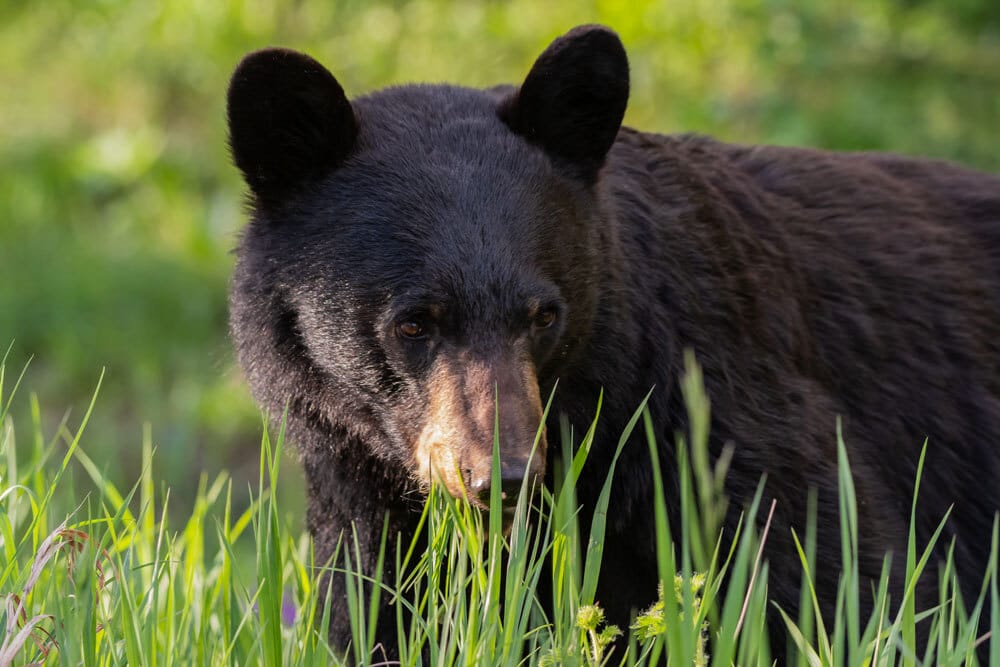
As with any uncontrolled population of large apex predators, black bears in Connecticut have been busy tearing into crops, overturning trash cans, and even breaking into homes. Adding insult to injury, over the last year, reports out of Connecticut have also confirmed at least two bear attacks on people. The absence of a hunting season for large mammals like bears often contributes to increased human-wildlife conflicts, and a regulated hunting season can effectively manage populations and mitigate risks to both humans and bears. As such, this growing trend has lawmakers, once again, eyeing a solution that makes absolutely perfect sense—a regulated bear hunting season.
While it might sound like a novel idea in the Constitution State, the truth remains that the idea’s been kicked around for years, splitting opinions among farmers, wildlife advocates, hunters, and suburban homeowners. On one side, supporters argue a hunt would target bears too cozy with populated areas, thinning out the boldest of the bunch. Opponents, on the other hand, are sticking with the idea that anything as fuzzy and cuddly as a black bear ought to be left alone, dismissing the need for action.
At a recent Environment Committee hearing, a local hunter by the name of Chas Catania put it plainly: “Connecticut bears are habituated to people. They are not afraid of us.” Unlike bears in other states that scatter at the first whiff of humans, these habituated bruins tend to stick around.
Currently speaking, the state’s black bear population sits in the neighborhood of roughly 1,200 bears, according to the Department of Energy and Environmental Protection (DEEP). Of those bears, the majority of them are currently clustered in Litchfield Hills but have been spotted in nearly every town state-wide.
Introduced this year, Senate Bill 1523 is setting its sights on changing the game, attempting, once again, to set up a fall hunt for Connecticut bear enthusiasts. At the moment, it’s got some bipartisan support along with Gov. Ned Lamont’s backing, though conservation groups aren’t wasting any time trying to stall it. This week’s public hearing drew quite a crowd and was filled with testimony flying from both sides.
DEEP’s Jason Hawley attempted to cut through the noise, pointing to Massachusetts, where a yearly cull of a few hundred bears manages to keep home invasions in check. Connecticut logged 67 home invasions by black bears just last year, plus dozens of more attempted B&Es, despite having fewer bears than neighboring states equipped with hunting seasons.
“It’s getting dangerous,” Hawley warned. “Someone’s going to get killed or severely hurt.”
In doing everything they possibly could to avoid actually hunting bears, the state passed laws greenlighting self-defense kills and permits for farmers to take out nuisance bears damaging crops or livestock in 2023. In total, 15 bears were put on the ground last year, and DEEP expects more takers as word spreads.
State Sen. Henri Martin also issued a stark warning to blind supporters of an all-out bear hunting ban, stating that in many cases these animals are often anthropomorphized by residents who tend to be quite out of touch with the natural world and wildlife.
“We’re not talking about Winnie-the-Pooh, or Yogi Bear, or Smokey the Bear,” Martin said. “We’re talking about black bears that are becoming more and more dangerous as they get used to humans.”
One of the state’s biggest problems seems to stem from an incomplete data set. While estimates put the population at 1,200 bears, as stated above, the reality is that a complete count has not been performed since 2014. The census, performed by researchers at UConn, counted approximately 235 different bears that year, a figure that has since been used as a baseline to estimate current populations.
The cost to perform an updated count is estimated to be in the neighborhood of $500,000 and a three-year process and is something lawmakers and residents aren’t overly keen on either paying for or waiting on.
The last push for a bear hunt in Connecticut fell flat in 2023, and residents ended up with only a handful of half-measures to deal with problem bears. With this new proposal, Sen. Rick Lopes is gauging support for a lottery-style season, with a vote that could come as early as this week.

